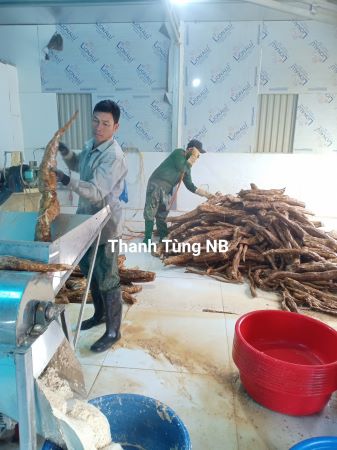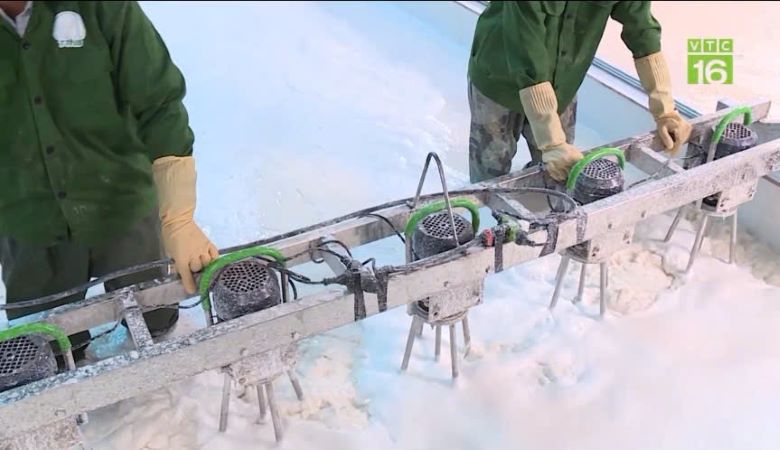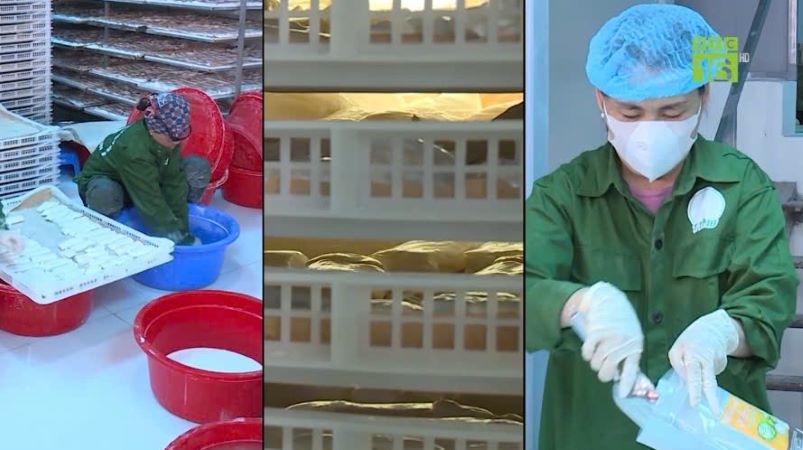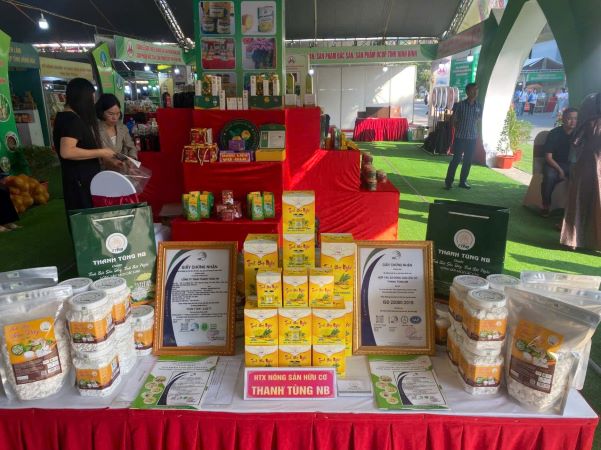
Cassava is a climbing plant belonging to the legume family, with its root being the most valuable part. Scientific research indicates that Cassava has a sweet flavor and cool properties, offering benefits such as detoxification, hangover relief, body purification, health enhancement, and alleviating constipation.

Step 1: Harvested Cassava roots are pre-processed and washed using a high-capacity spray washing system to remove soil adhering to the outer peel, ensuring the roots are clean and white.

Step 2: The cleaned Cassava roots are ground finely using grinding machines.
Step 3: The ground Cassava is transferred to a centrifugal filtration system to separate the pulp, collecting the Cassava starch liquid, which is then pumped into storage tanks. The residual pulp is bagged and returned to the cultivation area for composting as fertilizer for the next crop, alongside newly harvested roots. The water used in the filtration process is clean water treated via an industrial filtration system meeting QCVN 01 standards.
Step 4: From the Cassava starch liquid, a stirring machine is employed to thoroughly mix the starch with clean water, followed by sedimentation. In the starch processing phase, meticulous filtration techniques are crucial. The process of changing water, separating black film, Cassava resin, and impurities is repeated until a layer of pure, high-quality white starch is achieved.


Step 6: The dried Cassava starch is packaged in boxes or heat-sealed silver zip bags for long-term preservation. Each package includes full labeling, traceability, and is stored in a dry location before being dispatched.

Currently, Cassava starch prices vary widely on the market, ranging from tens to hundreds of thousands of VND per kilogram, depending on the authenticity, quality, and point of sale. Price discrepancies among major brands also arise due to:
Raw Materials: Pure local or hybrid Cassava varieties, and organic versus conventional cultivation methods.
Production Process: Scale, processing line, and drying methods.
Production and Operational Costs: Including electricity, water, labor, facility rent, and marketing expenses.
Notably, the cost cannot be excessively low since producing 1 kg of pure Cassava starch requires approximately 7 kg of fresh roots, along with processing costs, food safety certification fees, and distribution methods. As of 2023-2024, the cost of pure local Cassava roots ranges from VND 15,000-20,000/kg depending on the season, with material costs alone exceeding VND 120,000 per kilogram of starch, not accounting for the meticulous production process to achieve premium quality.
Genuine Cassava starch is sharp-edged, brittle, and exhibits a beautiful white hue. When tasted warm, it dissolves quickly on the tongue without any gritty sensation, leaving a sweet, cooling aftertaste that lingers uniquely. When mixed with cool water, genuine starch dissolves entirely. Properly cooked starch achieves a thick, elastic consistency and a smooth texture visible at the bottom of the pot. A practical test: Consuming genuine Cassava starch for 2-3 days (2 glasses per day) effectively alleviates symptoms of heatstroke, mouth ulcers, or constipation. Counterfeit products fail to deliver such results.



Create a free Listing to introduce your business and be visible to your potential customers
_________________________________
YELLOW PAGES CONTACT
+84 24.3636.9512 (Ext 312)
Hotline/ Zalo: +84 914 261 828 (Ms Amy)
